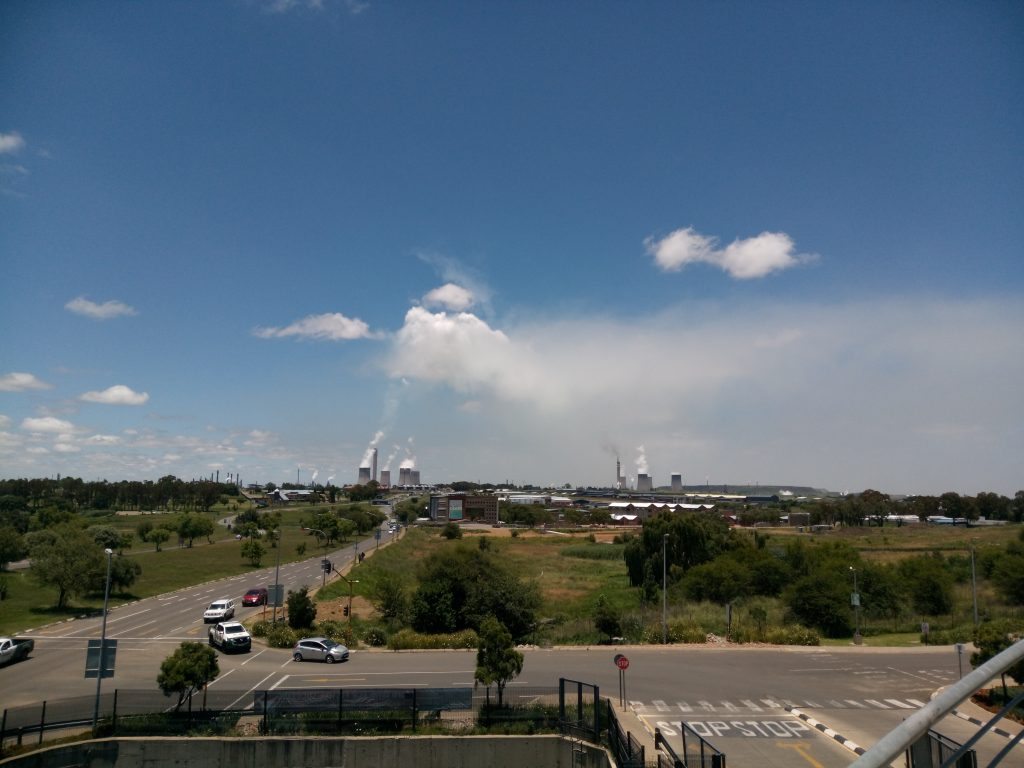
The Sasol AEL public consultations were met with criticism and opposition.
Hannes Buys, Senior Manager SHE Environment Air, struggled to deliver his presentation about the Air Emissions Licence (AEL) during Sasol’s public participation campaign.
Everything that he said was challenged by Ian Erasmus, Whistleblower and former employee, and Gavin McGillan, former contractor.
Gavin immediately questioned whether the session is a public consultation session or an information session. “the session is labelled incorrectly” said Gavin
Hannes Buys said that the session is a requirement of the current and existing Atmospheric and Emissions licence. “part of that requirement is that we engage with the public, that we give feedback to the public in terms of our performance, that we give feedback on the quality of the ambient air,” said Hannes, “and that we give feedback on the initiatives that Sasol give to improve the air quality.”
Gavins stated that these sessions are punitive measures against Sasol emanating from their operations here. He also stated that Sasol is not currently compliant with the AEL. Hannes Buys assured him that Sasol is fully compliant.
Gavin stated that Sasol is not fully compliant.
The Bulletin asked for the presentation that was used to be forwarded to our offices on several occasions, but no response was received to date.
Sasol is being accused on several fronts of polluting the environment and has recently been taken to court on pollution of water at their Secunda plant.
RSG, the Afrikaans national radio station recently introduced a podcast as follows (translated), “Sasol is the biggest releaser of greenhouse gasses in South Africa after Eskom. Its Secunda plant where synthetic fuel is manufactured from coal and gas, is a single plant that produces the most greenhouse gasses in the world. During the past 7 years, the group invested more than R7billion rand to lessen the release of these gasses at the Secunda and Sasolburg plants. According to Sasol, it complies with 98% of the requirements at these plants. It does not, however, comply with the standards for the release of Sulfur Dioxide!”
“Sasol applied in June to the National Air Quality official to change the way that these emissions are measured. This was not approved! Sasol wants to appeal the decision.”

RSG spoke to Simon Baloyi from Sasol regarding this development. Click HERE for the podcast (in Afrikaans)
Hannes buys continued with his presentation and was questioned on every aspect. The Bulletin took a video but unfortunately bad light influenced the quality of the video.
Also read: Photographers excel at club meeting
Sasol’s presentation continued to say that they are fully compliant with their Air Emissions Licence but Ian and Gavin challenged this.
The following quote comes directly from Sasol’s website:
AIR QUALITY MANAGEMENT
We acknowledge the link between our activities and air quality and the need to act responsibly in managing our impacts. We have a holistic air quality management approach, which is informed by internationally accepted practices.
We are committed to complying with all applicable regulatory requirements and monitor and report on our activities diligently.
Our air quality management system enables us to develop and implement feasible and sustainable emission-reduction strategies to mitigate our atmospheric footprint.
We adopted a robust abatement technology approach, informed by in-depth engineering studies and in-situ piloting of plausible solutions, aimed at identifying feasible abatement solutions.
We have a risk-based approach to managing air quality. This is aligned with our safety and health approach and considers the complexity of our operations. We are committed to working with all stakeholders on our air quality improvement journey.
We participate in policy and regulatory developments as well as in community initiatives to improve air quality.
MANAGING AIR QUALITY COMPLIANCE
By 1 April 2020, our existing plants in South Africa were required to meet the point source standards applicable to newly commissioned plants. Sasol has already met the prescribed minimum emission standards for 98% of our emissions sources. Details on all the efforts which contributed to this including the achievements for particulate matter ( PMs) NOx, sulphur dioxide (SO2), incinerators and total volatile organic compounds (TVOCs) are included, per operations. For the remaining 2%, we have been provided extension on compliance for the remaining sources via postponements granted by the Department of Forestry, Fisheries and the Environment (DFFE) until 1 April 2025. We are on track with our air quality roadmaps to achieve this milestone for all point sources except for our steam plant operations in Secunda.
During 2020, we applied for further postponement for four additonal sources at our Secunda Operations following the inclusion of these point sources in the Secunda Atmospheric Emissions Licence upon review thereof. These sources require postponement to meet the volatile organic limits contained in the applicable standard. We recently concluded the required public participation and await the decision of the authorities.
We aim to also achieve compliance for these sources by 1 April 2025. We remain resolute in our intent to achieve our commitments and complete our air quality compliance roadmaps in the last stretch of our compliance journey to ensure that our mature plants meet the prescribed standards for newly commissioned plants along the extended compliance timeframes we obtained through lawful postponements by 1 April 2025.
Ian Erasmus made photographs available that show some of the extent that, which they are arguing, Sasol pollutes the air.
Hi Encee, thank you for putting out the article, it’s necessary to be open and frank in life. Let’s do it again as promised and get the resultant corrective action from the company authorities and benefits to the that stem from a better environment. Grant McGillan.